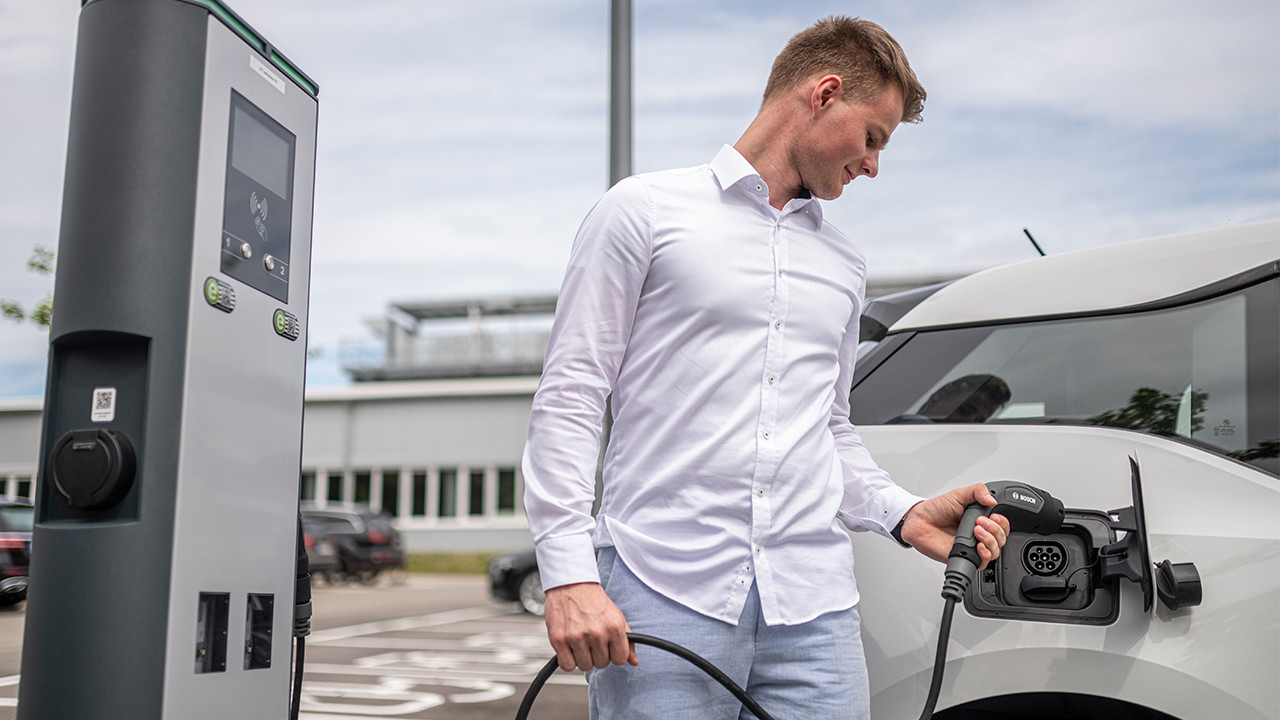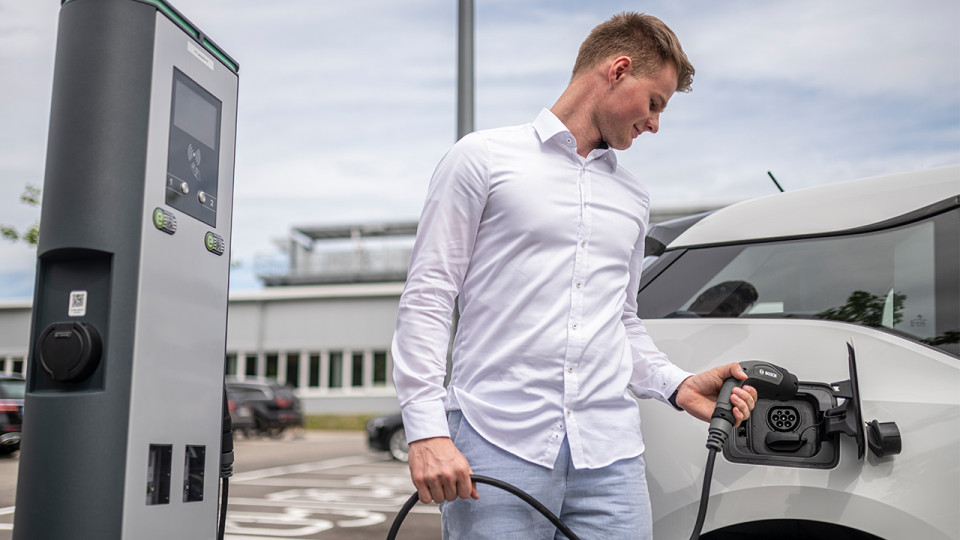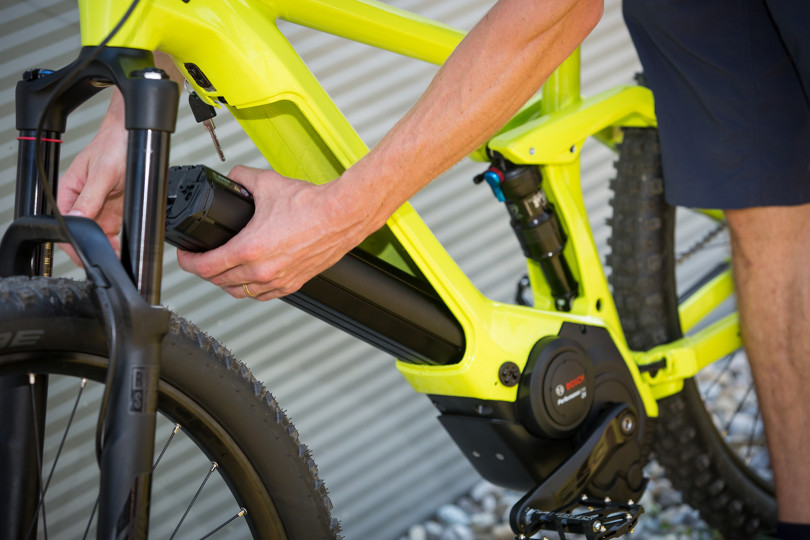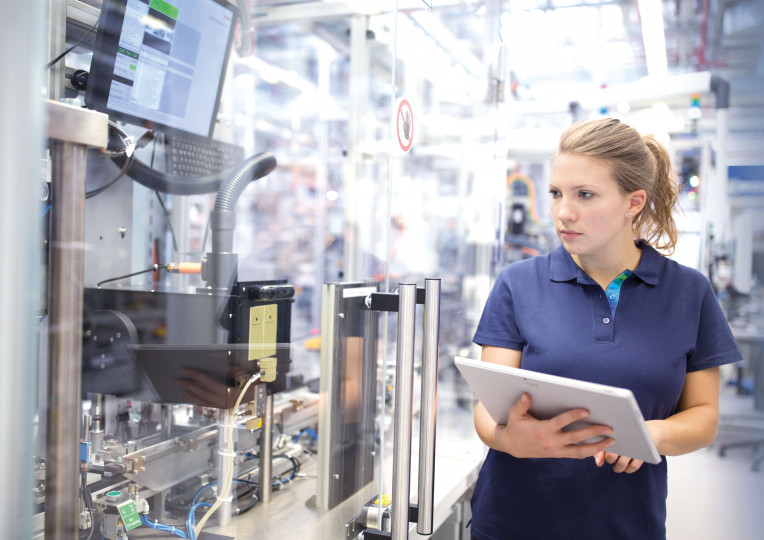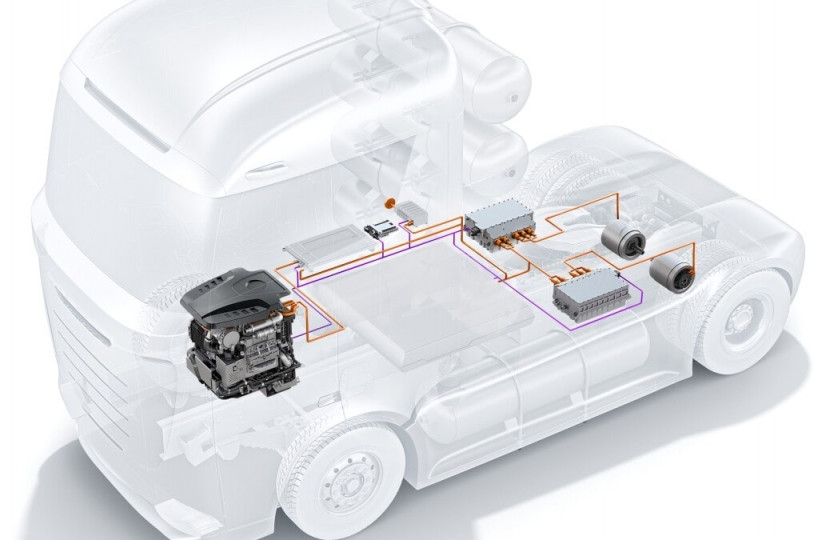Budapest – One of the most important trends in the automotive industry today is electromobility, which will become a core business for Bosch. The company spent around 700 million euros on electromobility in 2021, with upfront investments totalling 5 billion euros so far. In recent years, there has also been a steady stream of development and investment in the field of electromobility in Hungary. "Our goal is to make Budapest the R&D hub of East-Central Europe through the development of electric and hybrid powertrains and other technical solutions," said István Szászi, representative of the Bosch Group in Hungary and the Adriatic region. In addition to its extensive R&D activities, the group also manufactures electric drive systems and e-mobility components at its sites in Miskolc, Maklár and Hatvan.
The future of e-mobility being developed in Budapest
"In the field of electromobility, no other company has a portfolio as broad as the Bosch Group: from eBikes to construction equipment, from silicon carbide chips to fully integrated e-axles" – emphasized Péter Gergen, head of e-mobility at the Bosch Budapest Engineering Center. In the automotive sector, Bosch offers electric solutions ranging from the smallest city cars to large trucks.
The Bosch Group in Hungary, and the Budapest Engineering Center in particular, is playing an increasingly prominent role in the development of electromobility. At the company's Budapest campus, almost all components of the electric powertrain are being developed, from mild hybrids (48-volt electric boost system) to fully electric cars, including components for electric motors and inverters, energy management (DC) systems and charging electronics, among others.
In addition to the battery electric technology, Bosch has a leading position in the development of fuel cell drive system technology. The development of fuel cell system components is also underway at the Budapest Engineering Center. In Budapest, for example, the electronics and mechanics of the fuel cell's air compressor are being developed.
In Budapest alone, the company employs 3,000 people working on future automotive technologies, including several hundred engineers specifically dedicated to electromobility-related developments. The company's new campus, which is currently under construction, will be another important site for research and development related to electromobility and autonomous vehicles. It will be an innovation centre that will contribute to the creation of even safer and sustainable green mobility by, among other things, harnessing the knowledge and ideas of Hungarian engineers. The new facility is expected to open in the second half of 2022.
New capacity and manufacturing activity
Bosch in Hungary continues its development in active cooperation with industry and academia, closely linking applied research in academia and industrial development. In 2021, the Group worked on several important development projects related to electromobility. A joint project between Robert Bosch Energy and Body Systems Kft. in Miskolc and the University of Miskolc has resulted in a new manufacturing process and component that represents a major step forward in the creation of the vehicles of the future. The technical solutions developed for motor cooling not only represent a technological advance, but the project has also created new research and development capacities and competences related to electromobility for the consortium members.
In addition to R&D activities, the company's automotive site in Miskolc is also an important production centre for Bosch's electromobility efforts. New-generation products from Robert Bosch Energy and Body Systems Kft., such as the brake assist motor and the stability control, are essential components for hybrids and electric vehicles. In addition to automotive components, another important product of the factory is the electric drive for eBikes, for which the batteries are developed and manufactured by Robert Bosch Power Tool Kft.
From this year onwards, Robert Bosch Elektronika Kft., based in Hatvan, plans to produce additional e-mobility components, such as a new generation of inverters. And Robert Bosch Automotive Steering Kft. will establish a total of 70,000 square metres of production and logistics space, as well as an integrated, modern service centre and office area in Maklár. As a result, the steering systems of the future will be produced in Maklár, as the demand for electric steering systems is growing with the transformation of the automotive industry. As well as being environmentally friendly, electric power steering technology works well with various assistance systems as a key element of automated driving.
Aiming for zero carbon transport
Bosch's R&D activities focus on developments based on electromobility, hydrogen and artificial intelligence, which contribute to drastically reducing emissions and meeting climate protection targets. Bosch is preparing for the growing demand for electric vehicles worldwide. It expects 60 percent of newly registered vehicles to be electric by 2035. The company is also open to all future powertrain technologies, is continuously developing internal combustion engines, and is a committed advocate of zero-emission driving.
Mónika Hack
+36 70 510 5516
Bosch has been present in Hungary since 1898 with its products. After its re-establishment as a regional trading company in 1991, Bosch has grown into one of Hungary’s largest foreign industrial employers with currently eight subsidiaries. In fiscal 2020 it had total net sales of 1,497 billion forints and consolidated sales to third parties on the Hungarian market of 238 billion forints. The Bosch Group in Hungary employs more than 15,500 associates (as of December 31, 2020). Figures of fiscal 2021 for the Bosch Group in Hungary will be available from May 26, 2022. In addition to its manufacturing, commercial and development business, Bosch has a network of sales and service operations that covers the entire country.
The Bosch Group is a leading global supplier of technology and services. It employs roughly 401,300 associates worldwide (as of December 31, 2021). According to preliminary figures, the company generated sales of 78.8 billion euros in 2021. Its operations are divided into four business sectors: Mobility Solutions, Industrial Technology, Consumer Goods, and Energy and Building Technology. As a leading IoT provider, Bosch offers innovative solutions for smart homes, Industry 4.0, and connected mobility. Bosch is pursuing a vision of mobility that is sustainable, safe, and exciting. It uses its expertise in sensor technology, software, and services, as well as its own IoT cloud, to offer its customers connected, cross-domain solutions from a single source. The Bosch Group’s strategic objective is to facilitate connected living with products and solutions that either contain artificial intelligence (AI) or have been developed or manufactured with its help. Bosch improves quality of life worldwide with products and services that are innovative and spark enthusiasm. In short, Bosch creates technology that is “Invented for life.” The Bosch Group comprises Robert Bosch GmbH and its roughly 440 subsidiary and regional companies in some 60 countries. Including sales and service partners, Bosch’s global manufacturing, engineering, and sales network covers nearly every country in the world. With its more than 400 locations worldwide, the Bosch Group has been carbon neutral since the first quarter of 2020. The basis for the company’s future growth is its innovative strength. At 128 locations across the globe, Bosch employs some 76,300 associates in research and development, of which more than 38,000 are software engineers.
Additional information is available online at www.bosch.hu, iot.boschblog.hu, www.bosch.com, www.iot.bosch.com, www.bosch-press.com, www.twitter.com/BoschPresse

